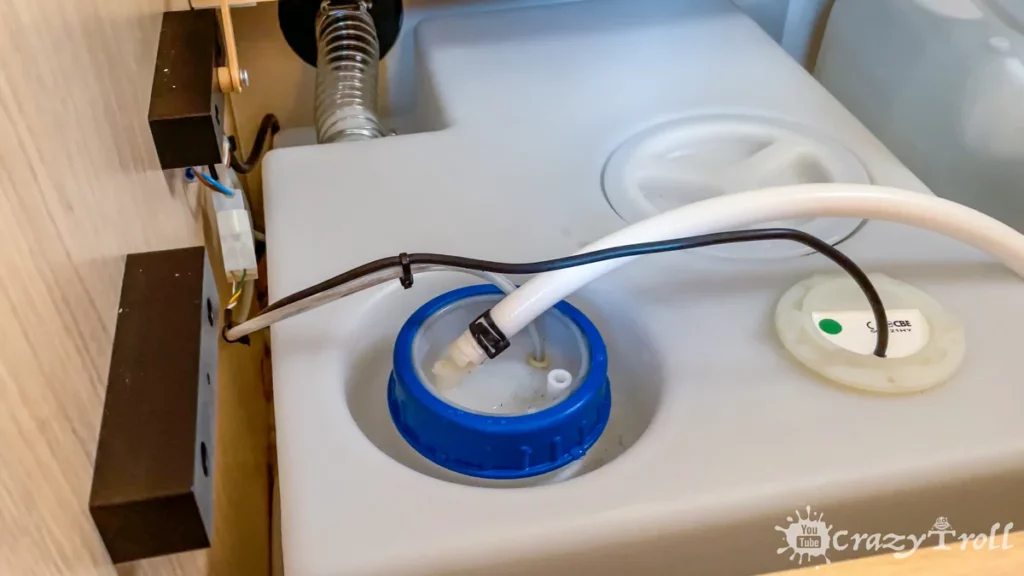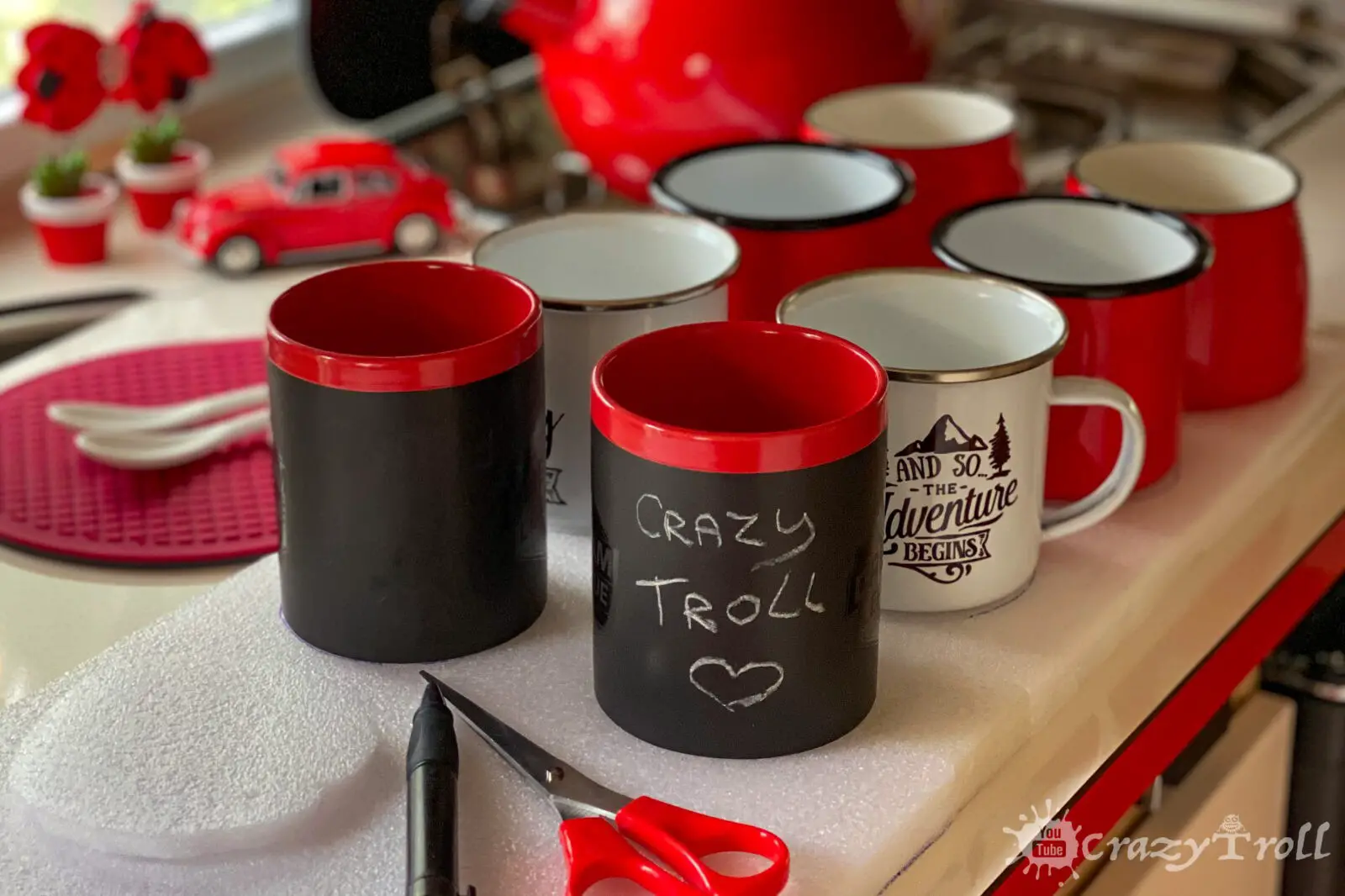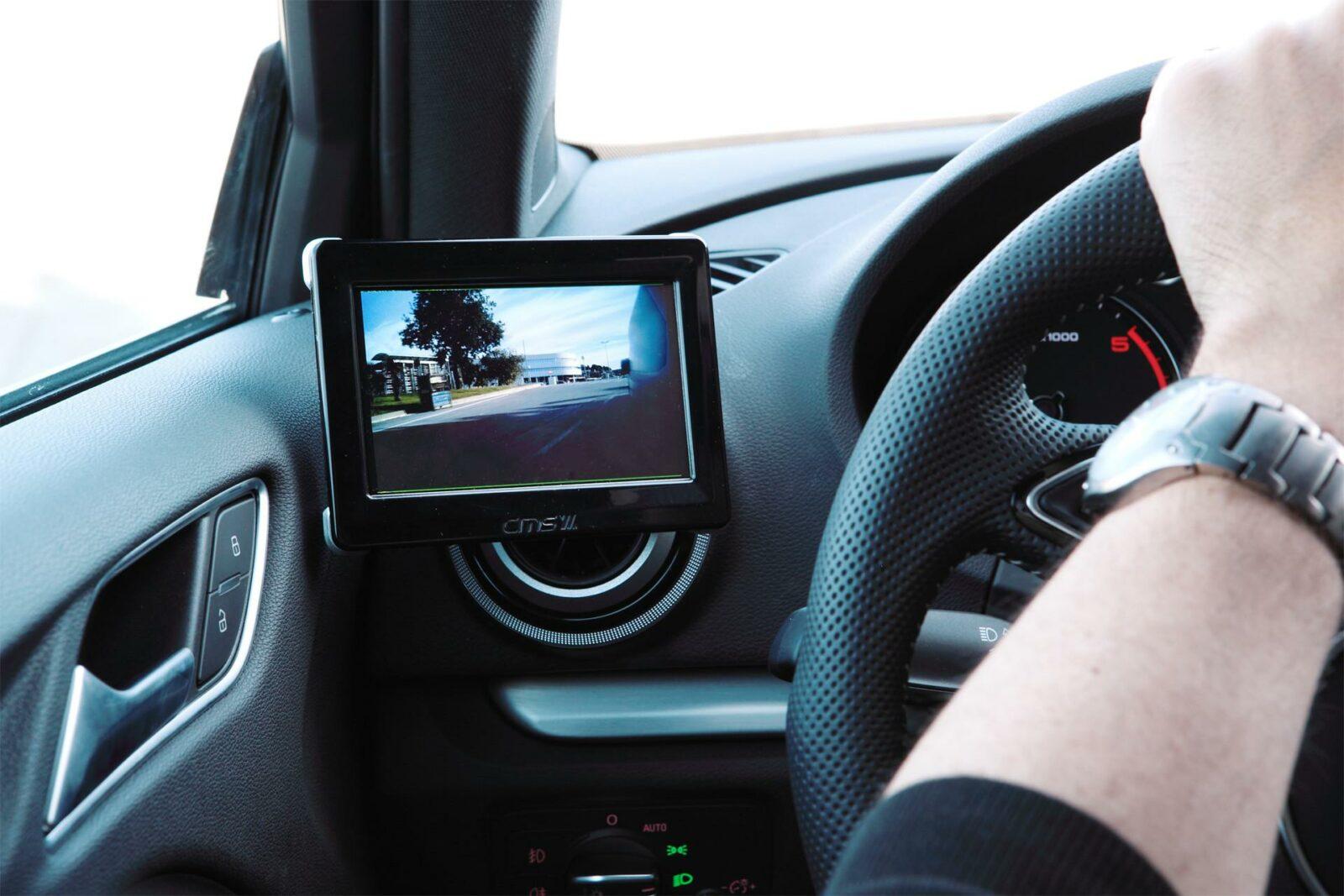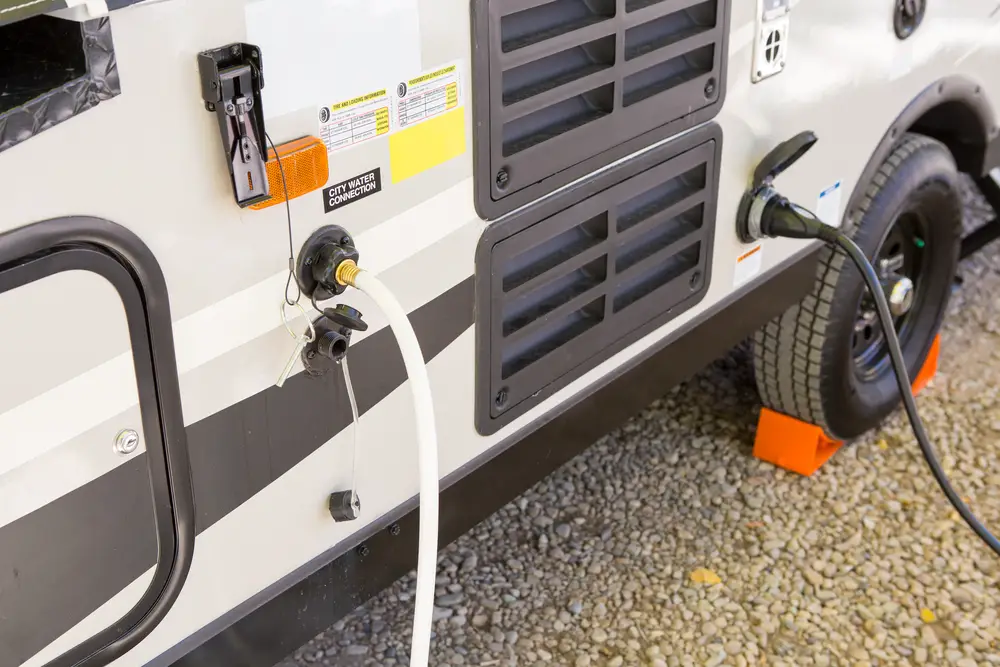If you’ve owned an RV for any amount of time the odds are good you’ve heard two things about your water pump:
- One, you can leave it on permanently and have absolutely zero effects whatsoever
- Two, if you leave your RV water pump even for just a day without water flowing you’ll blow up the whole system
Kind of confusing, right?
That’s why we put together this quick guide.
Below we run through (almost) everything you need to know about whether or not leaving your water pump on is a good idea or a nightmare waiting to happen.
By the time you finish the inside info below you’ll know exactly how to handle your RV water pump system from here on out.
Shall we started?

Can I Leave My Water Pump on in My RV?
First off, you should know – independent of whether or not it’s a good idea – that you certainly can choose to leave your water pump on in your RV.
There are some water pump systems on the market today that have “auto shut off capabilities” that can shut your water pump down when water isn’t flowing. But those are kind of expensive, definitely a little finicky, and often times more headache than they are worth to deal with.
Most RV water pumps are manual operated, which means you are in full control of whether or not that pumping system is running all the time, sometime, or not at all.
Should I Leave My Water Pump On, Though?
When it comes to whether or not you should have your water pump running all the time, though, we have some advice:
Only run the water pump when you know you’re going to be using water in the first place. Make sure that your water pump is turned off when you are rolling down the road, turning it back on when you get to another spot with water hookups.
Sure, leaving your water pump on permanently isn’t going to destroy that pump in a day, a week, or (in most circumstances) even a year. But it is going to draw extra power and it is going to damage the components, shortcutting the lifespan considerably over the long haul.
Nobody wants to find out that their water pump “when on the fritz” just because they left it running.
The only thing worse than that is finding out late one night when you really need to use the water in your RV and are far from a parts store!
Advantages of Shutting Your RV Water Pump Down
Why leaving your RV pump on permanently guarantees you have access to on-demand water at any point in time there for the most part), we already went over a couple of the reasons that’s not a good idea.
Here are some of the advantages of shutting that RV water pump down until you’re hooked up and actually need it.
For starters, you won’t have to worry about the RV water pump “hum” that it gives off around-the-clock – but especially when you are trying to sleep – just because it is constantly on.
Secondly, you won’t have to worry about consuming excessive amounts of power when your water pump is in operation but not actually pumping any water. These things aren’t the most power-hungry systems in your RV, but every little bit of energy counts when you are rolling down the road.
A great way to prevent your pipes from freezing overnight in cold weather is to let one of your water faucets sort of “trickle” water when not in use. If your water pump is on this isn’t something you’re going to be able to do, which can lead to pipes freezing up and a nightmare of plumbing project ahead of you.
Finally, you’re not going to have to worry about waking up to a flooding situation inside of your RV.
Everybody should be doing regular maintenance on core RV systems like their plumbing set up, but every now and again surprise leaks or catastrophic failures slip by. Leaving your water pump run all night long with these kinds of issues can turn minor problems into huge emergencies overnight.
That’s the last thing you want to worry about!
My Water Pump Isn’t Working – Now What?
But let’s say that you have turned your water pump on and off and are nervous that it isn’t working the way it is supposed to.
Here’s a quick rundown of things you can do to troubleshoot the situation before calling in the experts.
Check Your Tank
First, you’ll want to actually check your water tank to confirm that you have plenty of freshwater to be pumped in the first place.
You’d be amazed at the amount of people that think their water pump has failed only to realize (sometimes too late) that the whole problem was caused by water tanks that were empty.
Inspect Your Lines
Another common problem folks blame on the water pump that really has nothing to do with it are leaky lines.
If your tank is full and your pump is still misbehaving you’ll want to have a look at all of the water lines that are running between the pump and the tank itself.
Loose connections, leaky fittings, or busted lines (even kinks and cracks) can all be reasons that your water pump is misbehaving. Have a look and make sure this is the issue.
Double Check the Flow of Water
Checking the flow of water to your pump is a priority as well.
Disconnect the waterline actually coming out of the pump itself and then see if water is moving towards the pump. If that’s happening and things are still dry you know that the line connecting the tank and the pump is malfunctioning.
Double check for blockages, refill the waterline, and make sure that the flow is moving correctly. If things are still “gummed up” it’s time to move on to the next step.
Check Your Pump
Only after you checked everything else we highlighted above should you have a closer look at your water pump.
Disconnect the pump (starting with the electrical connection and then the waterline connections) and visually inspect the pump itself. You might notice right away a catastrophic failure or burnt out component that requires a repair or a replacement.
If not, and the pump still isn’t working, it’s probably time to either repair or replace that component. It might even be something you want to disconnect and bring to a local RV mechanic for expert advice.








